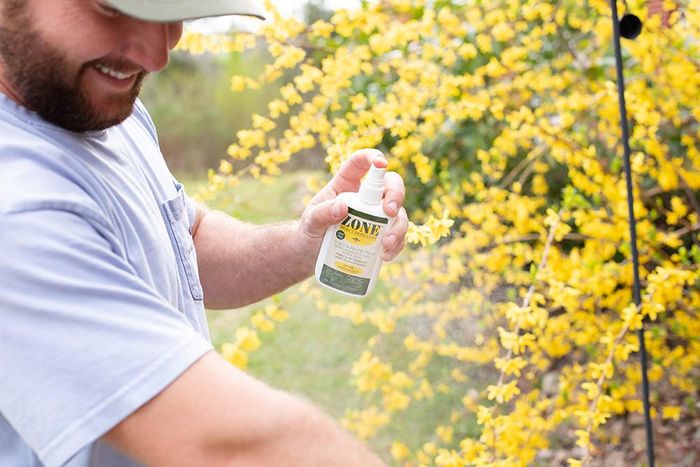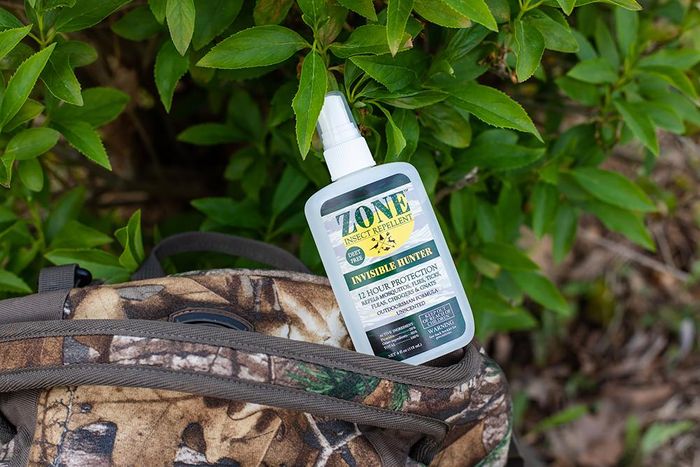Summertime means picnics, bike rides, hikes and outdoor adventures. Unfortunately, summertime also means mosquitoes and other pesky insects. Bug bites can certainly put a damper on your outdoor fun, but more importantly, mosquitoes and ticks can carry diseases that are harmful. A safe and effective picaridin-based insect repellent can limit bites and protect you and your family from illnesses carried by insects.
So, what is Picaridin exactly and why is it the best?
Picaridin, also called Icaridin and Saltidin, was developed by Bayer AG in the 1980s and has been sold in the U.S. since 2005. Not only is it an alternative to DEET, but it far surpasses DEET in every category that matters, including safety and effectiveness.
Picaridin was made to resemble the natural compound piperine, which is found in the group of plants that are used to produce black pepper. For all you chemistry geeks out there like me, Picaridin is an insect repellent in the piperidine chemical family. The chemical name is long, but it is essentially an aromatic nitrogen compound, and of course, nitrogen comprises 79% of the air we breathe. picaridin is very safe!
Does it work? There exists a very fun scientific experiment called the Mosquito Cage Test. This is where hungry mosquitoes are enclosed in a space and lucky scientists stick their arms into the cage and watch what happens. A dream job to be certain. They are testing for “efficacy,” or how well a mosquito repellent works when applied to the skin and then subjected to feasting insects. After they retrieve their arms and check their life insurance policies, they determine the efficacy of the insect repellent chemicals.
Picaridin performed better than DEET in that efficacy testing, appearing to repel a wide range of pests (Badolo 2004, Barnard 2004, Carroll 2010, Consumer Reports 2010). The World Health Organization recommends Picaridin for protection against mosquitoes that carry diseases (WHO 2012). According to the WHO, Picaridin “demonstrates excellent repellent properties comparable to, and often superior to, those of the standard DEET.” The WHO also states that picaridin is better than DEET because of its efficacy and safety.
EPA registration data indicates that a 20% concentration of Picaridin is effective against mosquitoes and ticks for 8 to 14 hours. The data for DEET and all the other insect repellents is simply not this good.
Experts warn that mosquitoes are becoming resistant to DEET. There is no data suggesting that mosquitoes are becoming resistant to picaridin.
In the United States, the Centers for Disease Control and Prevention recommends using repellents based on Picaridin, DEET, IR3535, or oil of lemon eucalyptus (containing p-menthane-3,8-diol, PMD) for effective protection against mosquitoes that carry the West Nile virus, Eastern Equine Encephalitis and other illnesses. As a government agency, the CDC can’t come out and say which is their favorite, but we all know it’s Picaridin.
In stark contrast to DEET, Picaridin also does not damage materials, fabrics or surfaces when applied.
Is that all? Nope, there’s more, Johnny! DEET has some more notable drawbacks when compared to picaridin insect repellents. DEET imparts a greasy feel to the skin upon application. It emits a distinctive — and to many, unpleasant — odor. Our friend Picaridin is odorless and does not have a greasy or oily feel on the skin.

The Best Choice For Your Family
Picaridin insect repellent is long-lasting, which is perfect for a day spent outdoors with little ones, camping, hiking, BBQing or ball games.
It is important to use an insect repellent anytime when outdoors. Not only will it protect against itchy and painful bites, insect repellents can also ward off pests that carry diseases like West Nile Virus and Zika. A picaridin-based insect repellent is your best option. It is safe, effective, long lasting, and, most importantly, it can help make your summer a good one.
Are you ready for a more enjoyable, safe outdoor experience with your family? Check out all of our available ZONE Insect Repellents. www.zonerepellents.com

